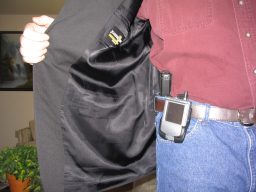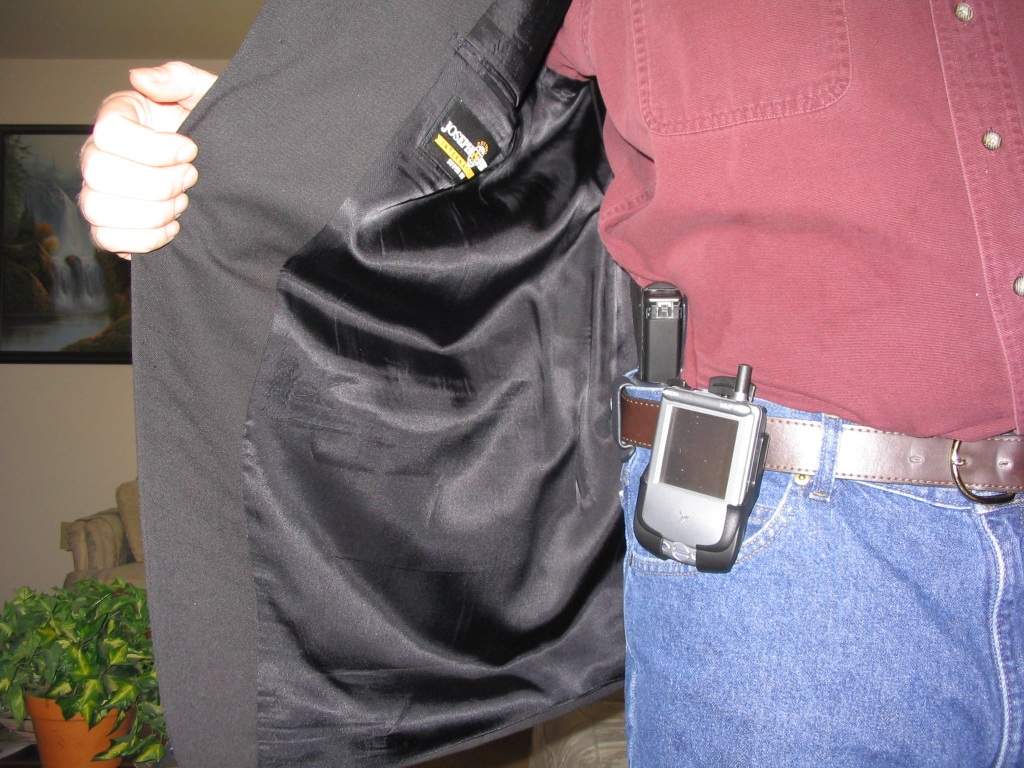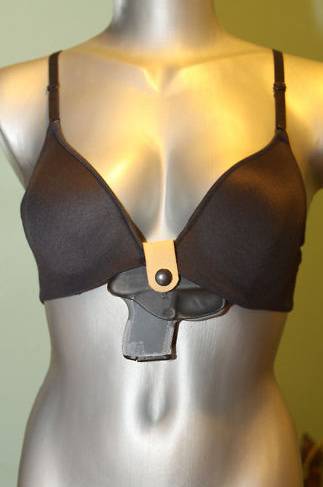I’ve heard a lot of advice over the years, but if you ask me, the following things make the most sense:
- Don’t tell the officer you’re armed unless you’re in a state where you’re legally required to. This goes against the advice of a lot of trainers (who tend to be former cops and who also tend to know how to deal with armed civilians). Not every cop who pulls you over will be Massad Ayoob. Don’t talk about it, and definitely don’t touch it. The only negative encounter I’ve had in a stop has been in Texas, where I was legally required to inform. In all other cases, I’ve kept my mouth shut and things went smoothly.
- Note that the first bit of advice will only work if you’re not likely to be searched. That’s most of us, but not all of us. If you live in a “duty to notify state” or you fit the profile for being highly likely to be searched, you’ll need to inform the officer. When you inform the officer, don’t even think about uttering the word “gun.” If an officer hears that word, and misses some context, there can easily be an overreaction. I’ve heard this advice from Massad Ayoob at NRA’s legal seminar, and I like it. Turn your license to carry over with your driver’s license and inform the officer you are carrying, where the firearm is, keep your hands on the steering wheel, and ask him what he would like you to do.
- Do not, under any circumstance, make any sudden move once the cop knows you’re armed. Don’t reach for your wallet unless the officer knows what you’re going to do and OKs it. Don’t reach for anything. Don’t do anything without the officer giving you the OK. Don’t even itch your nose. Some cops will want to disarm you. Others will just tell you to sit tight and keep it holstered.
In my case in my Texas stop where I had to inform, the cop asked me to unload and make clear, then took the firearm. I was glad he had me do it. One of my fears with “duty to inform” is having a cop relieve me of a firearm who does not have good trigger discipline. That’s a big reason I’m a proponent of the first item: keep your mouth shut if you legally can and you’re not likely to be searched.
I’d rather deal with the fallout from “Officer, I will comply with your order to get out of the vehicle but I need to inform you that I have a license to carry and I am carrying. Please tell me what you want me to to do,” than to risk being the next Philando Castile.
The dash cam video in the Castile case is now public. If you carry a firearm legally, you should watch this:
The officer claimed he reached for the weapon. I shared Bob Owen’s belief on this:
While I have strong doubts about the validity of Yanez’s claims that he thought Castile was reaching for a gun, how do prosecutors prove beyond a reasonable doubt that Yanez’s response to that perceived threat was both unreasonable and criminal?
A jury found the claim reasonable, or at least credible enough to support the Officer Yanez’s self-defense claim. I was not on the jury, and I did not follow the trial closely. If someone did, feel free to chime in if you have information I don’t.
But if you inform an officer that you’re armed, and then move for the gun, or move for your wallet or something else, even if your intention is to hand it over to the officer, you’re running a very very severe risk of being shot. Once you inform, and you should have your hands in plain view on the wheel when you do, do not do anything that the officer does not first order you to do.
UPDATE: I should mention, though it won’t help you avoid being shot, is recording your encounter. If Castile’s girlfriend were recording the whole encounter, and not just after the shooting, it could have changed the entire dynamic as to whether the officer’s actions were reasonable.




